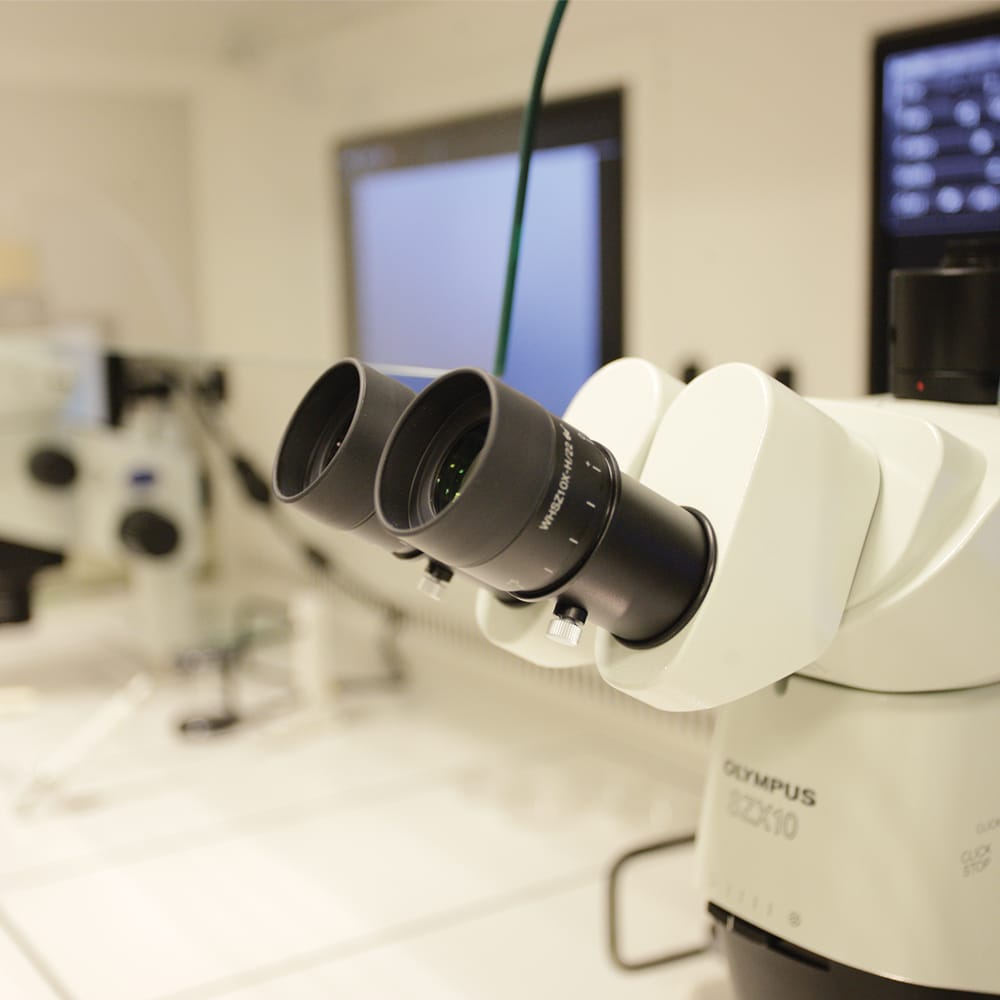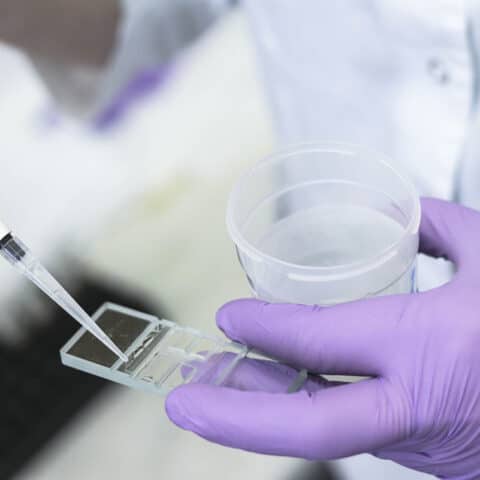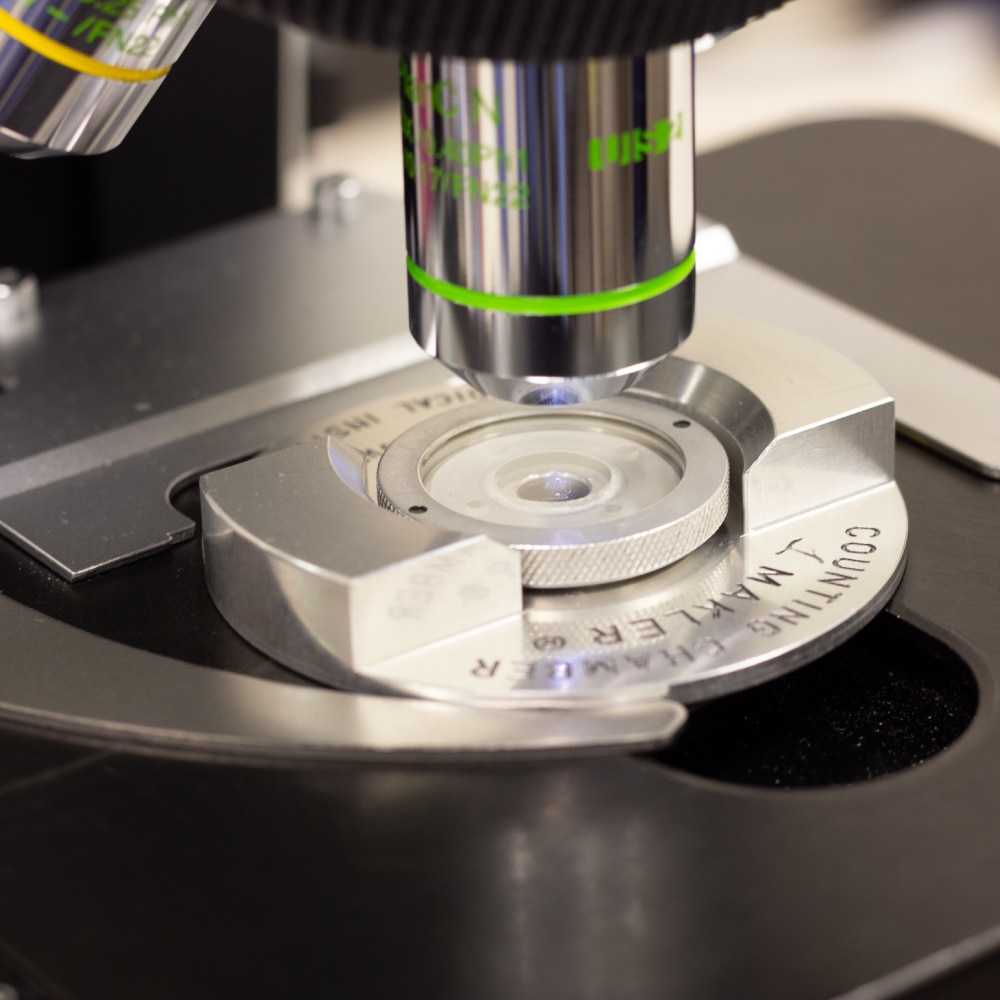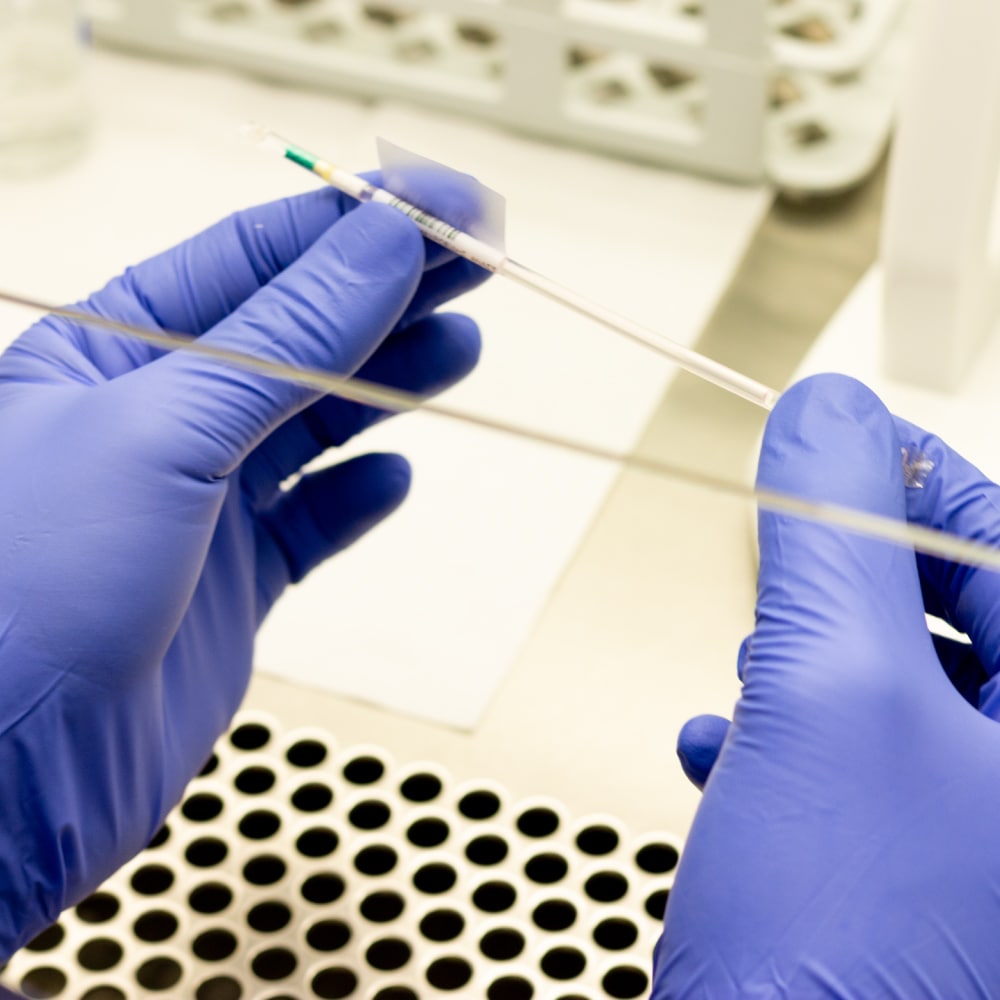Genetic Testing

The advancements in molecular biology and genetics offer the possibility of examining the genes involved in sperm production and identifying any possible genetic disorders.
Genetic testing is a series of blood tests. The advancements in molecular biology and genetics offer the possibility of examining the genes involved in sperm production and identifying any possible genetic disorders.
What is genetic testing?
Genetic testing is a series of blood tests that detect the genetic causes that lead to complete absence of sperm (azoospermia) or to a significant reduction in the number, motility and morphology of sperm (oligospermia, asthenospermia and teratospermia). These may be caused by inherited chromosome disorders or damage to the genetic material after birth.
The main genetic tests are listed below:
Karyotyping: It depicts all the chromosomes of the man, and identifies abnormalities in the number and structure of chromosomes (deletions, duplications, mutations and translocations of genes).
Cystic fibrosis: A condition whereby the man inherits a faulty gene from both parents. In this case, he may develop agenesis of his sperm ducts, meaning that the testicles produce semen as per normal, but it cannot be ejaculated.
AZF microdeletions: This is a series of mutations that are located in the Y chromosome and relate to sperm production. The presence of these mutations is linked to azoospermia or oligospermia.
DNA fragmentation test: This test checks for possible damage to the sperm DNA, which may be due to the presence of free radicals, such as in the case of varicocele, testicular tumors, chemotherapy performed for other reasons, etc.
Genetic Testing for Men
The doctor usually recommends that the man undergoes genetic testing if severe infertility is established, accompanied by azoospermia or oligospermia. Testing is also recommended when there are cases of hypogonadotropic hypogonadism (pituitary or hypothalamic dysfunction) or syndromes associated with male infertility (such as Klinefelter, Kallmann, Prader Willi, Young’s, etc.) in the family history of the man.
Genetic testing is also performed when differences are detected in male features, voice, hair growth, muscle mass etc.
Preparation
No special preparation is required for genetic testing, as it is a simple blood draw. Eating or drinking does not affect the result; however, given that genetic testing includes other tests as well, it would be best for the patient to fast for eight hours before the blood draw.
Results
The test results vary depending on the case. To best approach male infertility in terms of treatment, it is necessary to evaluate the genetic test results along with any other diagnostic tests the man has undergone.
Relevant Topics
-
Azoospermia / Retrograde ejaculation
Azoospermia / Retrograde ejaculation During retrograde ejaculation, the semen travels into the bladder and, as a result, the man...
-
Innovative lab techniques
Innovative lab techniques The causes of male infertility are addressed and the chances of success are maximized, based on...
-
Ultrasound
Ultrasound It is often used to diagnose the causes of male infertility, but also problems linked to male sexuality....
-
Genetic Testing
Genetic Testing The advancements in molecular biology and genetics offer the possibility of examining the genes involved in sperm...
-
Hormone Testing
Hormone Testing A hormone test is a blood test that measures the levels of hormones, which play a major...
-
Investigation of male reproductive tract inflammation
Investigation of male reproductive tract inflammation If the semen analysis indicates an infection (increased number of round cells, mucus,...
-
DNA Fragmentation Testing
DNA Fragmentation Testing DNA fragmentation assay is the most important sperm function test. DNA fragmentation assay is the most...
-
Microbiological and Biochemical Analysis
Microbiological and Biochemical Analysis Microbiological analysis is recommended when there is a history of inflammation or indication such as...
-
Sperm activation / Sperm viability
Sperm activation / Sperm viability The total number of progressively motile sperm after sample treatment is calculated. The most...
-
Semen Analysis
Semen Analysis A semen analysis is the key test for investigating male infertility. It is performed in compliance with...

















